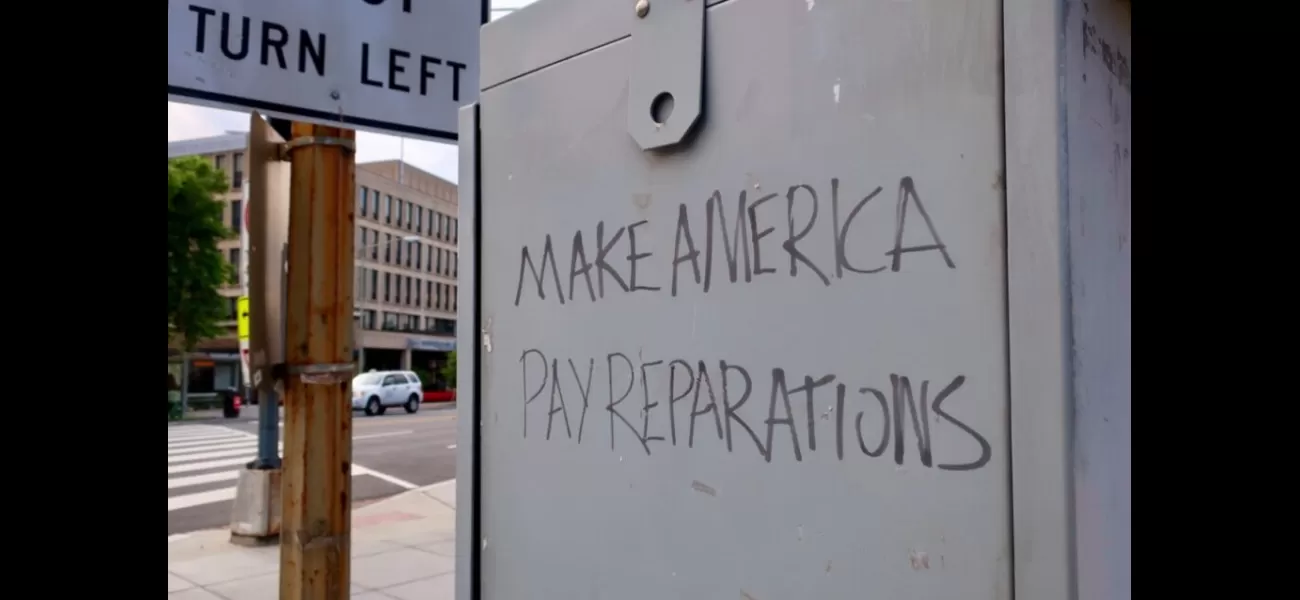Conservative group sues Evanston over Black reparations plan.
Conservative group files lawsuit on behalf of a group of people, according to Judicial Watch.
June 7th 2024.

A group of Black residents in Evanston, Illinois is facing obstacles on their quest for reparations as a conservative activist group claims the program is unconstitutional. The program, which was implemented in 2021, offers payments to Black residents who were affected by discriminatory housing policies and practices from 1919 to 1969. However, Judicial Watch has filed a class action lawsuit against the program, arguing that the use of race as a factor in determining eligibility violates the equal protection clause.
Evanston, a suburb of Chicago, has a history of discriminatory practices, such as redlining, which prevented Black people from purchasing homes in predominantly white areas. While redlining may no longer be legal, its impact on the Black community is still evident today. A recent study showed that the homeownership rate for white Americans is significantly higher than that of Black Americans.
In an effort to address this historical injustice, Evanston allocated $10 million in cannabis sales tax revenue for a reparations program. The first phase of this program provided $25,000 to eligible Black residents. To qualify for the payment, individuals must prove that they or their ancestors lived in Evanston during the aforementioned period or have experienced housing discrimination due to the city's policies.
However, Judicial Watch argues that using race as a requirement for receiving payments is unconstitutional and simply a ploy to redistribute tax dollars based on race. They are seeking damages and a judicial order to prohibit the city from continuing to use race as a factor in the program.
This lawsuit is just one of many that have arisen following a 2023 Supreme Court decision that prohibits the use of race-conscious admissions practices in colleges. The city of Evanston has responded to the lawsuit, stating that they will defend their reparations program vigorously.
While the future of the Evanston reparations program remains uncertain, the city's efforts to acknowledge and address the harm caused by discriminatory housing policies and practices are commendable. It serves as an important reminder of the ongoing struggle for racial equality and the need for continued progress and reparations for marginalized communities.
Evanston, a suburb of Chicago, has a history of discriminatory practices, such as redlining, which prevented Black people from purchasing homes in predominantly white areas. While redlining may no longer be legal, its impact on the Black community is still evident today. A recent study showed that the homeownership rate for white Americans is significantly higher than that of Black Americans.
In an effort to address this historical injustice, Evanston allocated $10 million in cannabis sales tax revenue for a reparations program. The first phase of this program provided $25,000 to eligible Black residents. To qualify for the payment, individuals must prove that they or their ancestors lived in Evanston during the aforementioned period or have experienced housing discrimination due to the city's policies.
However, Judicial Watch argues that using race as a requirement for receiving payments is unconstitutional and simply a ploy to redistribute tax dollars based on race. They are seeking damages and a judicial order to prohibit the city from continuing to use race as a factor in the program.
This lawsuit is just one of many that have arisen following a 2023 Supreme Court decision that prohibits the use of race-conscious admissions practices in colleges. The city of Evanston has responded to the lawsuit, stating that they will defend their reparations program vigorously.
While the future of the Evanston reparations program remains uncertain, the city's efforts to acknowledge and address the harm caused by discriminatory housing policies and practices are commendable. It serves as an important reminder of the ongoing struggle for racial equality and the need for continued progress and reparations for marginalized communities.
[This article has been trending online recently and has been generated with AI. Your feed is customized.]
[Generative AI is experimental.]
0
0
Submit Comment





